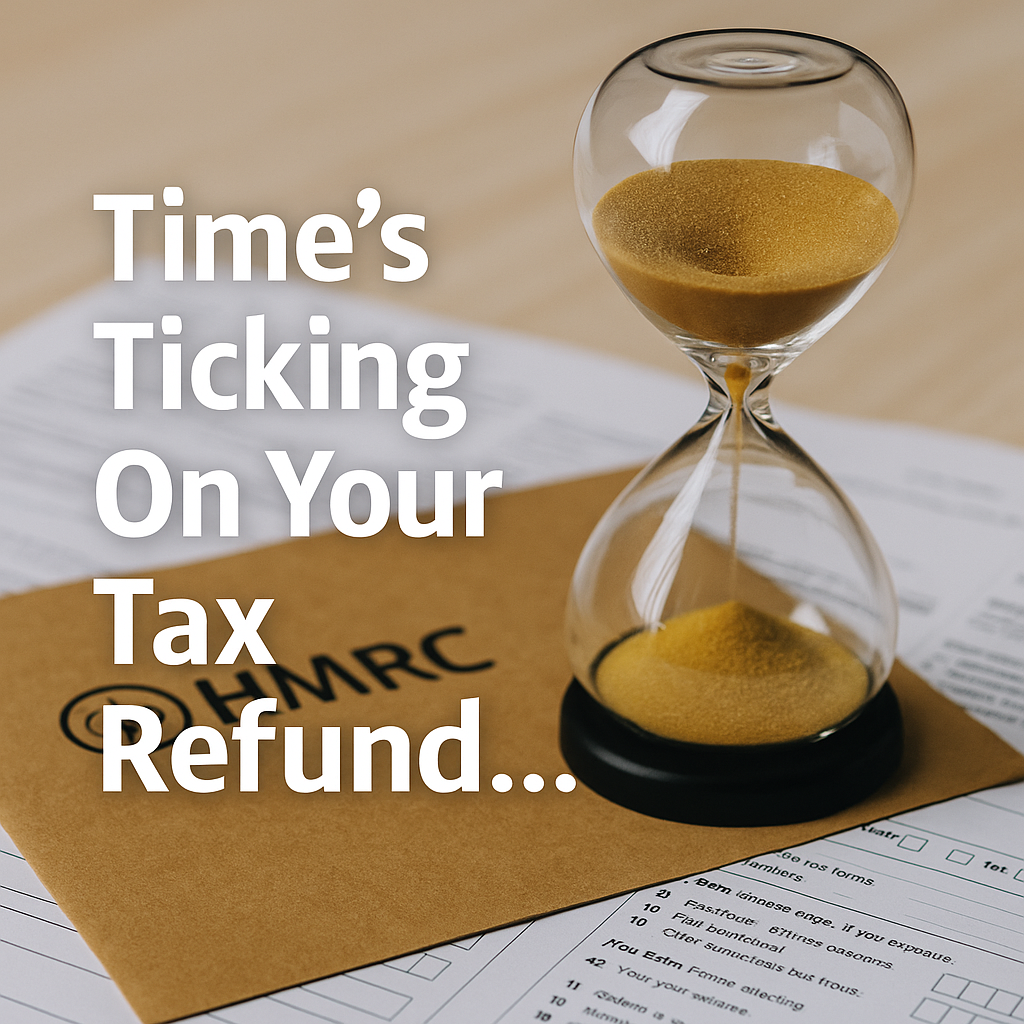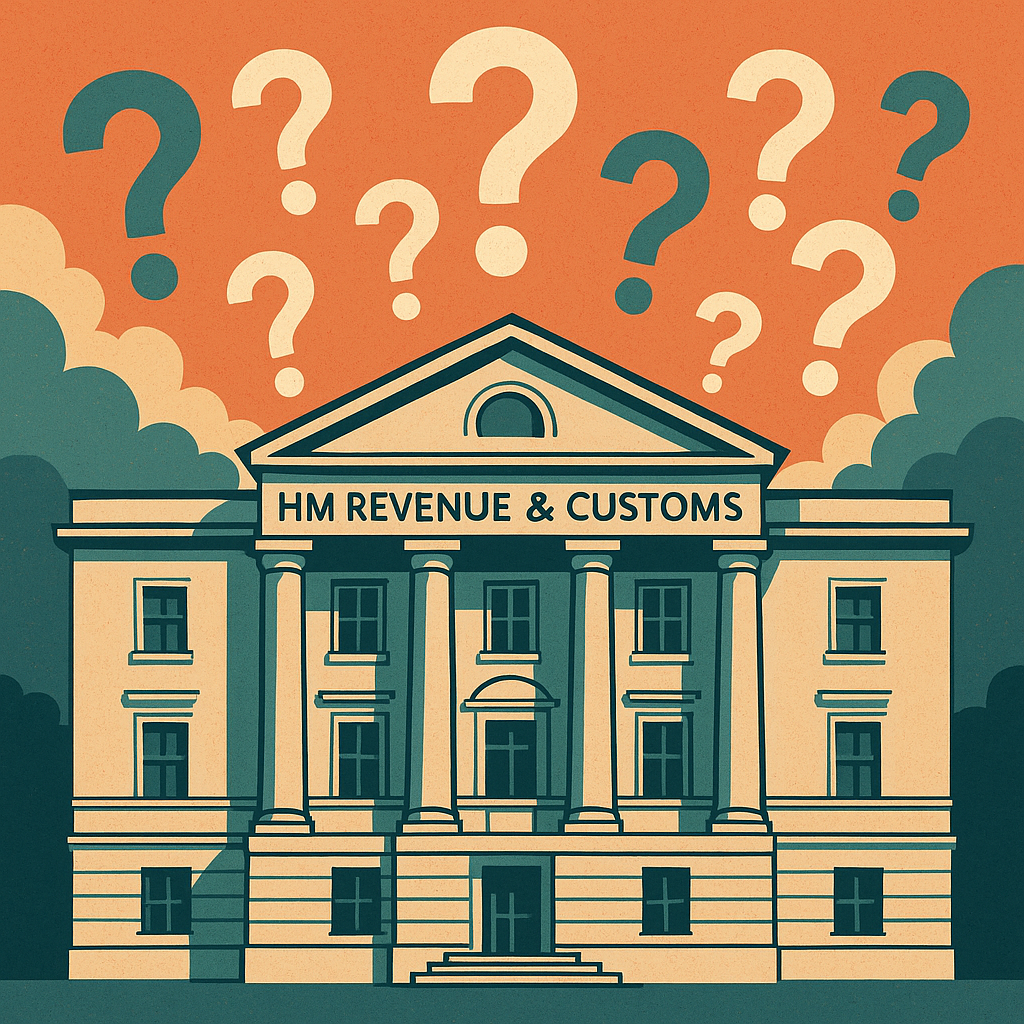
The post arrives with that familiar brown envelope, and your heart does a little skip. Not the good kind. You’ve filed your self assessment, done everything by the book, and now you’re waiting for what feels like forever for HMRC to process your self assessment tax rebate. Sound familiar? You’re not alone in this particular circle of bureaucratic purgatory.
Here’s the thing about tax refunds that nobody tells you upfront: they’re not HMRC’s priority. While you’re checking your bank account daily (admit it, we all do), they’re processing thousands of claims with the speed of a particularly leisurely snail. But what if I told you there’s a way to fast-track this entire process?

When HMRC Becomes Your Least Favourite Pen Pal
Let’s be brutally honest – HMRC operates on what I like to call “government time.” You know, that magical dimension where three weeks means six months, and “processing” could mean anything from “we’ve looked at your form” to “your paperwork is somewhere in a pile that reaches the ceiling.”
Recent reports show that HMRC processing times have become even more challenging, with some refunds taking 8-12 weeks to process, and in some cases, delays extending well beyond this timeframe. For instance, one client’s overdue refund of over £1,000 from a self assessment tax rebate claim filed in April 2025 wasn’t expected until June 2025.
But here’s where it gets interesting. Professional tax advisors often see much faster processing times. Why? Because they speak HMRC’s language fluently, they know exactly how to present information, and they have established relationships with tax offices.
The Hidden Reasons Your Refund Might Be Delayed
Documentation Disasters
HMRC has an almost supernatural ability to find fault with paperwork. That receipt you photographed slightly off-centre? Problem. The business expense you claimed that sits in a grey area? Red flag. Your handwriting that looks like a spider fell into an inkwell? Instant delay.
Common documentation issues include:
- Incomplete P60s or P45s
- Missing receipts for claimed expenses
- Unclear pension contribution records
- Benefit-in-kind paperwork that doesn’t match employer records
The Self-Employment Maze
If you’re self-employed, congratulations – you’ve just entered the most complex part of the tax system. HMRC scrutinises self-employment claims with the intensity of a forensic accountant. They want to see:
- Detailed profit and loss accounts
- Bank statements that align with declared income
- Clear separation between business and personal expenses
- Evidence of legitimate business activities
Previous Year Complications
Sometimes your current self assessment tax rebate gets tangled up with previous year’s affairs. Maybe you amended a return, or there was an error in your PAYE coding. These historical hiccups can cause your refund to grind to a halt while HMRC sorts out the mess.
Current Processing Reality: The 2024-2025 Situation
The situation has deteriorated significantly since the pandemic. HMRC now aims to process tax refunds within 8 to 12 weeks from the date of application, but this timeline can extend during peak periods or if additional checks are necessary. Currently, about 10% of refunds face delays due to data discrepancies or pending verifications.
What makes this particularly frustrating is that HMRC has indicated they’re processing claims received several months ago, with warnings of potential additional delays. This means if you filed your self assessment tax rebate claim recently, you could be looking at a wait well into the next tax year.
The Professional Advantage: Why DIY Might Be Costing You
| Aspect | DIY Approach | Professional Service |
| Processing Time | 8-12 weeks (often longer) | 4-6 weeks typical |
| Error Rate | 25% of self-filed returns | Less than 5% |
| Refund Amount | Often underclaimed | Maximised legally |
| HMRC Queries | Handled by taxpayer | Managed professionally |
| Delay Management | Limited options | Direct HMRC contact |
When Ask Accountant handles your self assessment tax rebate, we’re not just filling in forms – we’re optimising your entire tax position. Our team knows exactly which expenses you might have missed, which reliefs you’re entitled to, and how to present your case in the most compelling way possible.
The Art of Maximising Your Refund
Most people leave money on the table without realising it. There are legitimate expenses and reliefs that slip through the cracks because the average taxpayer doesn’t know they exist.
Working From Home Relief
Post-pandemic, this has become huge. You can claim £6 per week for the tax year 2024-25 if you’ve worked from home regularly. Doesn’t sound like much? For a higher-rate taxpayer, that’s £125 back in your pocket annually.
Professional Development Costs
Training courses, professional memberships, industry magazines – these often qualify for relief. The key is proving they’re necessary for your work, and knowing exactly how to present these claims to avoid triggering delays.
Travel and Subsistence
Business travel costs can mount up significantly. Hotel stays, meals (within reason), parking fees, and mileage all potentially qualify. The trick is meticulous record-keeping and understanding HMRC’s specific rules – something that becomes even more crucial given current processing delays.
When HMRC Queries Strike Back
Sometimes, despite your best efforts, HMRC decides to investigate your claim. Don’t panic – this doesn’t necessarily mean you’ve done anything wrong. They randomly select returns for review, and certain patterns trigger automatic flags.
Common query triggers:
- Unusually high expense claims
- Significant changes from previous years
- Round numbers (HMRC finds these suspicious)
- Claims that seem disproportionate to declared income
This is where professional representation becomes invaluable. When Ask Accountant represents you, we handle all correspondence with HMRC. We speak their language, understand their concerns, and can often resolve queries without you ever having to speak to a tax inspector.

The Technology Factor
HMRC’s computer systems are… let’s call them “vintage.” They’re running on technology that makes your old Nokia look cutting-edge. This means:
- Processing delays during peak periods
- System crashes that reset your application
- Compatibility issues with modern browsers
- Data transfer errors that require manual intervention
Professional services often have direct access to HMRC systems that bypass some of these bottlenecks, which is particularly valuable given the current processing challenges. Our cloud accounting services can help streamline this process.
Real-World Success Stories
I recently had a client who’d been waiting ten months for a self assessment tax rebate of £3,400. HMRC kept requesting additional documentation, each time adding another month to the process. Within three weeks of taking on the case, we had the refund processed and in their account – even during the current delays.
Another client, a freelance graphic designer, had been claiming minimal expenses for years. A proper review of her working practices revealed she was entitled to significantly more relief. Her self assessment tax rebate increased from £800 to £2,100 – money that had been sitting there all along.
The Cost-Benefit Analysis
Let’s address the elephant in the room: professional fees. Yes, using a service like Ask Accountant costs money upfront. But consider this, especially with current processing delays:
| Service Cost | Typical Refund Increase | Time Saved | Stress Reduction |
| £250-450 | £600-1,800 additional | 20-30 hours | Immeasurable |
| One-off fee | Often recurring benefit | No HMRC correspondence | Professional peace of mind |
Most clients find the service pays for itself through increased refunds alone, before you even factor in the time saved and stress avoided – particularly valuable when delays are becoming the norm rather than the exception.
The Current Crisis: Why Professional Help Matters More Than Ever
The current processing delays aren’t just inconvenient – they’re symptomatic of a system under strain. HMRC is facing criticism for delayed tax refunds and service changes, with processing times becoming increasingly unpredictable.
This creates a perfect storm where:
- Your self assessment tax rebate takes longer to process
- Queries and requests for additional information become more common
- The appeals process becomes more protracted
- Individual taxpayers have limited recourse
Professional services like Ask Accountant have established relationships with HMRC that can help navigate these challenges, including HMRC investigations, more effectively than individual taxpayers can manage alone.
The Seasonal Rush Problem
HMRC experiences predictable seasonal bottlenecks, but these have become more severe recently. January submissions (the deadline rush) often aren’t processed until late summer. Summer holiday periods slow everything down even further. Christmas… well, forget about it.
Professional services anticipate these patterns and time submissions accordingly. We know when to file early, when to expect delays, and how to position your claim for fastest processing – knowledge that’s become even more valuable given current circumstances.
What Happens When Things Go Wrong
Sometimes, despite everyone’s best efforts, your self assessment tax rebate claim hits a snag. Maybe HMRC disputes an expense, or there’s a technical issue with your submission. With current processing delays, these problems can drag on for months.
This is where having professional representation becomes absolutely crucial. Ask Accountant doesn’t just submit your claim and disappear. We monitor progress, chase up delays, and represent you in any disputes. Our relationship with HMRC means we can often resolve issues through professional channels that aren’t available to individual taxpayers.
The Future of Self Assessment
HMRC is slowly modernising its systems, but change happens at glacial pace. The Making Tax Digital initiative promises streamlined processes, but implementation has been slower than expected. In the meantime, you’re stuck with the current system’s quirks and increasingly lengthy delays.
Professional services adapt quickly to system changes and often beta-test new processes. When changes do come, we’re ready.
Making the Decision
If you’re currently waiting for a self assessment tax rebate and feeling frustrated with the process, you’re not alone. The system is complex, slow, and recent developments have made it even more challenging for individual taxpayers.
But here’s the thing: you don’t have to navigate this alone. Professional tax services exist precisely because the system is so labyrinthine. We speak HMRC’s language, understand their processes, and can often achieve in weeks what takes individuals months – if they succeed at all.
The question isn’t whether you can eventually get your refund – you probably can, given enough time and patience. The question is whether your time is worth more than the cost of professional help, especially when delays are becoming the norm.
Taking Action
Your self assessment tax rebate shouldn’t be a source of ongoing stress, particularly when processing delays are largely outside your control. Whether you’re dealing with a current claim that’s stuck in the system or planning ahead for next year’s submission, professional assistance can transform the entire experience.
Ask Accountant, based at 178 Merton High St, London SW19 1AY, specialises in exactly these situations. Our team combines technical expertise with practical experience to maximise your refund while minimising your stress. We understand the current challenges facing HMRC and know how to work within them effectively. Call us at +44(0)20 8543 1991 or contact us to discuss how we can help accelerate your self assessment tax rebate process.
Remember: the longer you wait, the longer your money stays in HMRC’s account instead of yours. With current processing delays, sometimes the best decision is simply to let the professionals handle what they do best.

Frequently Asked Questions
Q: How long should I take before I seek professional assistance in my self assessment tax rebate?
A: Paying that much attention to the existing delays in processing, in case you already waited longer than 6 weeks without any correspondence on the part of HMRC, it is high time to take recourse to professional help.
Q: Can a professional service really speed up my refund during current delays?
A: Yes, normally by 40-60 per cent even under present adverse conditions. The accuracy and correct format of professional submission will make its processing faster.
Q: What if HMRC has already rejected my claim?
A: Professional services can often successfully appeal rejections by addressing HMRC’s specific concerns with additional documentation or clarification – crucial given current processing challenges.
Q: Is it worth using a professional service for small refunds given current delays?
A: Current delays make professional services more valuable even for smaller refunds. Consider not just the money, but the time and stress saved.
Q: Is it possible to change and turn to professional assistance in the course of action?
A: Absolutely. Productive services are capable of assuming any existing claim at whatever stage of the settlement process and this is especially useful in the midst of delays as it is the case at this time.
Q: Can the existing delays be termed as temporary?
A: These delays may still be taking place and might extend until the year 2025 as HMRC is currently taking efforts to increasing the processing times.







